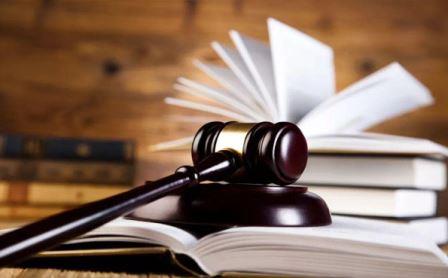Criminal Law of the People’s Republic of China (Adopted at the Second Session of the Fifth National People’s Congress on July 1, 1979; revised at the Fifth Session of the Eighth National People’s Congress on March 14, 1997 and promulgated by Order No.83 of the President of the People’s Republic of China on March 14, […]

Criminal Law of the People’s Republic of China
(Adopted at the Second Session of the Fifth National People’s Congress on July 1, 1979; revised at the Fifth Session of the Eighth National People’s Congress on March 14, 1997 and promulgated by Order No.83 of the President of the People’s Republic of China on March 14, 1997)
Contents
Part One General Provisions
Chapter I The Aim, Basic Principles and Scope of Application of the Criminal Law
Chapter II Crimes
Section 1 Crimes and Criminal Responsibility
Section 2 Preparation for a Crime, Criminal Attempt and Discontinuation of a Crime
Section 3 Joint Crimes
Section 4 Crimes Committed by a Unit
Chapter III Punishments
Section 1 Types of Punishments
Section 2 Public Surveillance
Section 3 Criminal Detention
Section 4 Fixed-term Imprisonment and Life Imprisonment
Section 5 The Death Penalty
Section 6 Fines
Section 7 Deprivation of Political Rights
Section 8 Confiscation of Property
Chapter IV The Concrete Application of Punishments
Section 1 Sentencing
Section 2 Recidivists
Section 3 Voluntary Surrender and Meritorious Performance
Section 4 Combined Punishment for Several Crimes
Section 5 Suspension of Sentence
Section 6 Commutation of Punishment
Section 7 Parole
Section 8 Limitation
Chapter V Other Provisions
Part Two Specific Provisions
Chapter I Crimes of Endangering National Security
Chapter II Crimes of Endangering Public Security
Chapter III Crimes of Disrupting the Order of the Socialist Market Economy
Section 1 Crimes of Producing and Marketing Fake or Substandard Commodities
Section 2 Crimes of Smuggling
Section 3 Crimes of Disrupting the Order of Administration of Companies and Enterprises
Section 4 Crimes of Disrupting the Order of Financial Administration
Section 5 Crimes of Financial Fraud
Section 6 Crimes of Jeopardizing Administration of Tax Collection
Section 7 Crimes of Infringing on Intellectual Property Rights
Section 8 Crimes of Disrupting Market Order
Chapter IV Crimes of Infringing upon Citizens’ Right of the Person and Democratic Rights
Chapter V Crimes of Property Violation
Chapter VI Crimes of Obstructing the Administration of Public Order
Section 1 Crimes of Disturbing Pubic Order
Section 2 Crimes of Impairing Judicial Administration
Section 3 Crimes Against Control of National Border (Frontier)
Section 4 Crimes Against Control of Cultural Relics
Section 5 Crimes of Impairing Public Health
Section 6 Crimes of Impairing the Protection of Environment and Resources
Section 7 Crimes of Smuggling, Trafficking in, Transporting and Manufacturing Narcotic Drugs
Section 8 Crimes of Organizing, Forcing, Luring, Sheltering or Procuring Other Persons to Engage in Prostitution
Section 9 Crimes of Producing, Selling, Disseminating Pornographic Materials
Chapter VII Crimes of Impairing the Interests of National Defence
Chapter VIII Crimes of Embezzlement and Bribery
Chapter IX Crimes of Dereliction of Duty
Chapter X Crimes of Servicemen’s Transgression of Duties
Chapter XI Supplementary Provisions
Part One General Provisions
Chapter I The Aim, Basic Principles and Scope of Application of the Criminal Law
Article 1 In order to punish crimes and protect the people, this Law is enacted on the basis of the Constitution and in the light of the concrete experiences and actual circumstances in China’s fight against crimes.
Article 2 The aim of the Criminal Law of the People’s Republic of China is to use criminal punishments to fight against all criminal acts in order to safeguard security of the State, to defend the State power of the people’s democratic dictatorship and the socialist system, to protect property owned by the State, and property collectively owned by the working people and property privately owned by citizens, to protect citizens’ rights of the person and their democratic and other rights, to maintain public and economic order, and to ensure the smooth progress of socialist construction.
Article 3 For acts that are explicitly defined as criminal acts in law, the offenders shall be convicted and punished in accordance with law; otherwise, they shall not be convicted or punished.
Article 4 The law shall be equally applied to anyone who commits a crime. No one shall have the privilege of transcending the law.
Article 5 The degree of punishment shall be commensurate with the crime committed and the criminal responsibility to be borne by the offender.
Article 6 This Law shall be applicable to anyone who commits a crime within the territory and territorial waters and space of the People’s republic of China, except as otherwise specifically provided by law.
This Law shall also be applicable to anyone who commits a crime on board a ship or aircraft of the People’s Republic of China.
If a criminal act or its consequence takes place within the territory or territorial waters or space of the People’s Republic of China, the crime shall be deemed to have been committed within the territory and territorial waters and space of the People’s Republic of China.
Article 7 This Law shall be applicable to any citizen of the People’s Republic of China who commits a crime prescribed in this Law outside the territory and territorial waters and space of the People’s Republic of China; however, if the maximum punishment to be imposed is fixed-term imprisonment of not more than three years as stipulated in this Law, he may be exempted from the investigation for his criminal responsibility.
This Law shall be applicable to any State functionary or serviceman who commits a crime prescribed in this Law outside the territory and territorial waters and space of the People’s Republic of China.
Article 8 This Law may be applicable to any foreigner who commits a crime outside the territory and territorial waters and space of the People’s Republic of China against the State of the People’s Republic of China or against any of its citizens, if for that crime this Law prescribes a minimum punishment of fixed-term imprisonment of not less than three years; however, this does not apply to a crime that is not punishable according to the laws of the place where it is committed.
Article 9 This Law shall be applicable to crimes which are stipulated in international treaties concluded or acceded to by the People’s Republic of China and over which the People’s Republic of China exercises criminal jurisdiction within the scope of obligations, prescribed in these treaties, it agrees to perform.
Article 10 Any person who commits a crime outside the territory and territorial waters and space of the People’s Republic of China, for which according to this Law he should bear criminal responsibility, may still be investigated for his criminal responsibility according to this Law, even if he has already been tried in a foreign country. However, if he has already received criminal punishment in the foreign country, he may be exempted from punishment or given a mitigated punishment.
Article 11 The criminal responsibility of foreigners who enjoy diplomatic privileges and immunities shall be solved through diplomatic channels.
Article 12 If an act committed after the founding of the People’s Republic of China and before the entry into force of this Law was not deemed a crime under the laws at the time, those laws shall apply. If the act was deemed a crime under the laws in force at the time and is subject to prosecution under the provisions of Section 8, Chapter IV of the General Provisions of this Law, criminal responsibility shall be investigated in accordance with those laws. However, if according to this Law the act is not deemed a crime or is subject to a lighter punishment, this Law shall apply.
Before the entry into force of this Law, any judgment that has been made and has become effective according to the laws at the time shall remain valid.
Chapter II Crimes
Section 1 Crimes and Criminal Responsibility
Article 13 A crime refers to an act that endangers the sovereignty, territorial integrity and security of the State, splits the State, subverts the State power of the people’s democratic dictatorship and overthrows the socialist system, undermines public and economic order, violates State-owned property, property collectively owned by the working people, or property privately owned by citizens, infringes on the citizens’ rights of the person, their democratic or other rights, and any other act that endangers society and is subject to punishment according to law. However, if the circumstances are obviously minor and the harm done is not serious, the act shall not be considered a crime.
Article 14 An intentional crime refers to an act committed by a person who clearly knows that his act will entail harmful consequences to society but who wishes or allows such consequences to occur, thus constituting a crime.
Criminal responsibility shall be borne for intentional crimes.
Article 15 A negligent crime refers to an act committed by a person who should have foreseen that his act would possibly entail harmful consequences to society but who fails to do so through his negligence or, having foreseen the consequences, readily believes that they can be avoided, so that the consequences do occur.
Criminal responsibility shall be borne for negligent crimes only when the law so provides.
Article 16 An act is not a crime if it objectively results in harmful consequences due to irresistible or unforeseeable causes rather than intent or negligence.
Article 17 If a person who has reached the age of 16 commits a crime, he shall bear criminal responsibility.
If a person who has reached the age of 14 but not the age of 16 commits intentional homicide, intentionally hurts another person so as to cause serious injury or death of the person, or commits rape, robbery, drug-trafficking, arson, explosion or poisoning, he shall bear criminal responsibility.
If a person who has reached the age of 14 but not the age of 18 commits a crime, he shall be given a lighter or mitigated punishment.
If a person is not given criminal punishment because he has not reached the age of 16, the head of his family or his guardian shall be ordered to discipline him. When necessary, he may be taken in by the government for rehabilitation.
Article 18 If a mental patient causes harmful consequences at a time when he is unable to recognize or control his own conduct, upon verification and confirmation through legal procedure, he shall not bear criminal responsibility, but his family members or guardian shall be ordered to keep him under strict watch and control and arrange for his medical treatment. When necessary, the government may compel him to receive medical treatment.
Any person whose mental illness is of an intermittent nature shall bear criminal responsibility if he commits a crime when he is in a normal mental state.
If a mental patient who has not completely lost the ability of recognizing or controlling his own conduct commits a crime, he shall bear criminal responsibility; however, he may be given a lighter or mitigated punishment.
Any intoxicated person who commits a crime shall bear criminal responsibility.
Article 19 Any deaf-mute or blind person who commits a crime may be given a lighter or mitigated punishment or be exempted from punishment.

